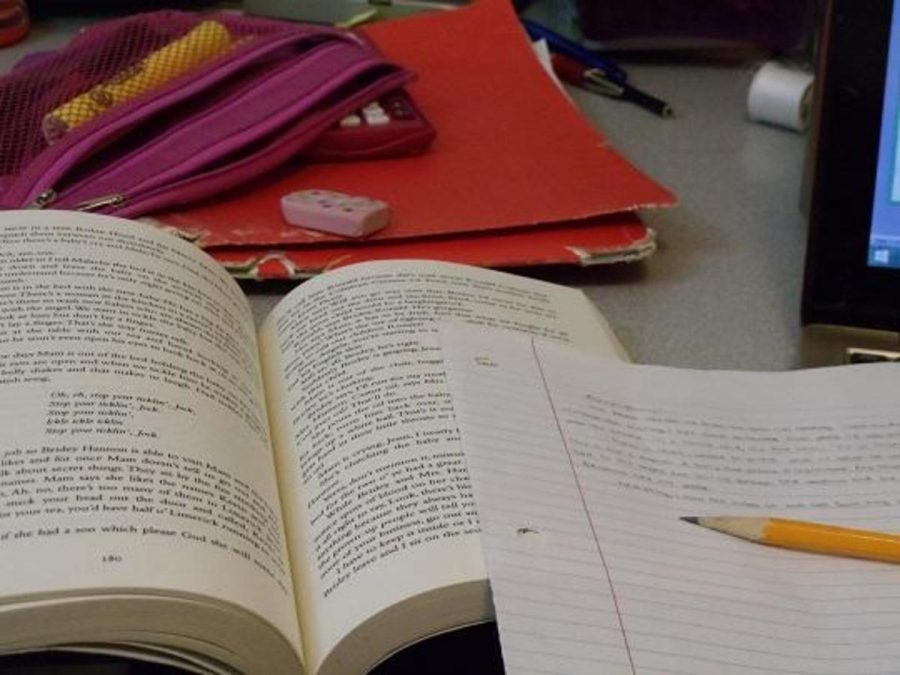‘Story of my life’
Students have already read different examples of good narrative writing in class. They have also looked at published memoirs. Combined with their short written stories, they can use these to help write their narrative.
January 9, 2015
In Mrs. Beth LeBlanc’s English 9 Accelerated classes, students are preparing to write their own personal narratives. Since the end of October, they have been analyzing different pieces of literature for rhetorical and stylistic devices.
“Students need to incorporate rhetorical devices to develop the story. By taking apart pieces of literature and analyzing how the devices add to the content, the easier and more natural their writing will become,” LeBlanc said.
They have also been reading memoirs of their choice and noting how the authors incorporate these devices to enhance their writing.
Some examples of the books read include Night by Elie Wiesel, Glass Castle by Jeannette Walls, and Look Me in the Eye: My Life with Asperger’s by John Elder Robison.
So far, students have written three short memoirs, using at least three pieces of rhetoric and deciding how the rhetoric adds to the text. In class, they have exchanged papers and peer edited what was written.
For their narratives, it is recommended that students use one of these memoirs and develop it further.
“I don’t think my stories are good enough to make into a story. Instead, I’m thinking of writing about my family’s travels to different places. We’ve been to China, Britain, Australia, and more,” freshman Quinn Rile said.
But, this is not all about incorporating rhetoric and stylistic devices.
“These narratives should dramatize events with flair, clarity, and skill. The plot should be well-conceived and well-written with an insightful and compelling conflict, climax, and resolution and a creative theme that is subtly woven into the plot line,” LeBlanc said.
“Writing is not all about the story. You’d be surprised how simple and seemingly insignificant some story events may be. The thing that stands out, what really matters, is the development. This is how the author crafts the story.”







